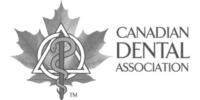TMJ (Temporomandibular Joint)
If a disorder exists with this joint, it can make eating, talking and even yawning painful. Temporomandibular joint (TMJ) disorders can be relatively minor or extremely debilitating. There may be many reasons for a TMJ disorder: clenching or grinding of the teeth, tightening jaw muscles, disease or injury can cause problems with your TM joint. These disorders can display a variety of symptoms including:
- Clicking or popping of the joints
- Tender or painful jaw muscles
- Difficulty or pain upon opening or closing the mouth
- Frequent headaches or neck aches
- Pain in the TM joint
- Ringing or buzzing sound in the ears
- Sensation of stuffiness, pressure blockage or pain in the ears
- Dizziness or lightheadedness
- Decreased jaw opening
The cause of TMJ dysfunction may involve the muscles of the joint, the bite or the joint itself.
TMJ Disorders can be caused by:
- Stress on the surrounding muscles
- Teeth clenching or grinding also known as bruxism
- Stress, poor posture or body alignment can cause the muscles surrounding the joint to tighten or spasm
- Abnormal jaw growth
- Missing teeth
- Diseases such as arthritis
The balance between the muscles and TM joint is an important one in preventing and treating TMJ disorders. If left untreated, muscles and joints that do not work well together may become trapped in a cycle of spasms and cause further injury to the joint, muscles and surrounding tissue.
Treatment of TMJ Disorders
There are many surgical and nonsurgical treatment options or a combination of treatments that can help restore normal function. In some cases, relief from discomfort can come from self-care techniques under the direction of your surgeon.










